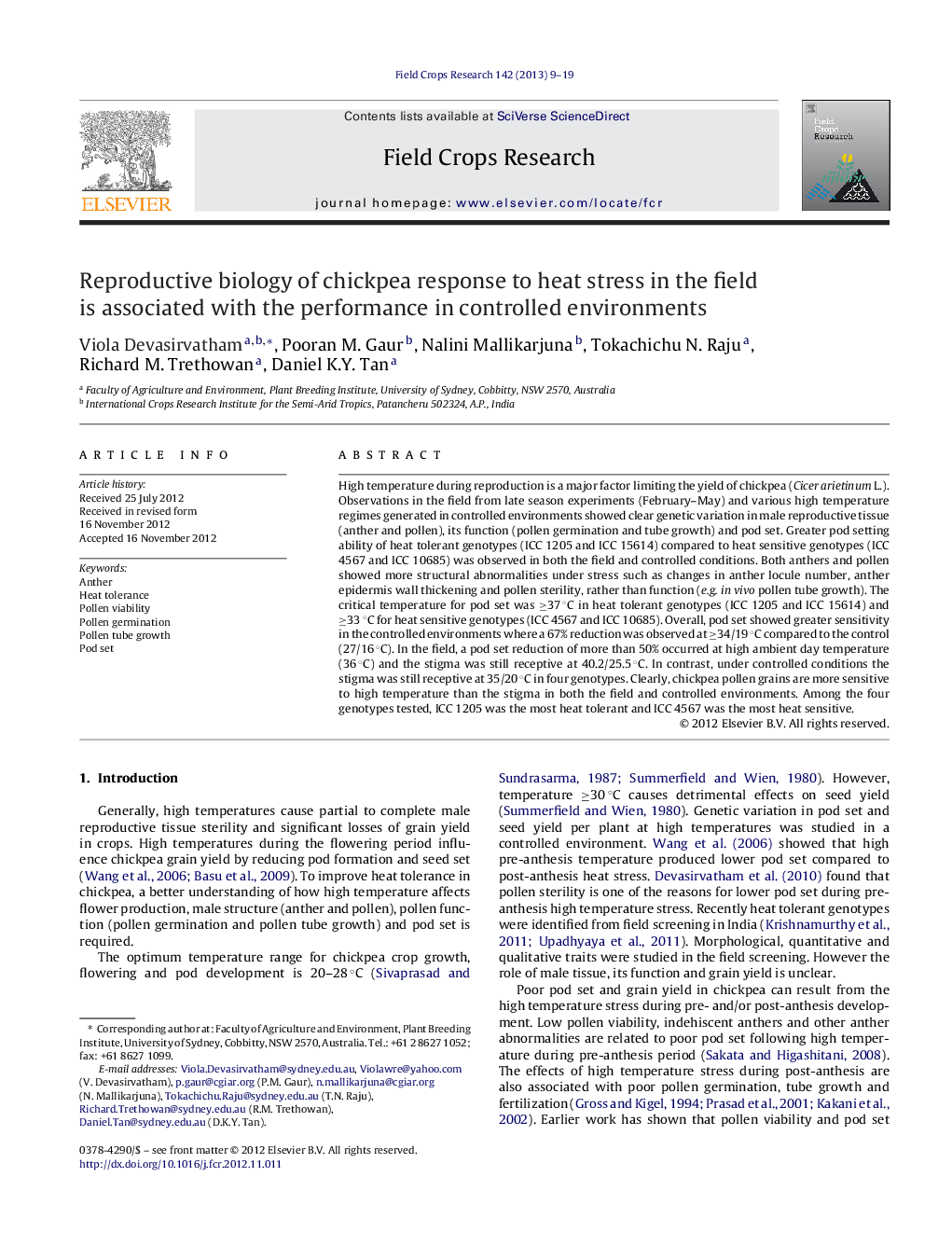| کد مقاله | کد نشریه | سال انتشار | مقاله انگلیسی | نسخه تمام متن |
|---|---|---|---|---|
| 4510258 | 1624721 | 2013 | 11 صفحه PDF | دانلود رایگان |
عنوان انگلیسی مقاله ISI
Reproductive biology of chickpea response to heat stress in the field is associated with the performance in controlled environments
دانلود مقاله + سفارش ترجمه
دانلود مقاله ISI انگلیسی
رایگان برای ایرانیان
کلمات کلیدی
موضوعات مرتبط
علوم زیستی و بیوفناوری
علوم کشاورزی و بیولوژیک
علوم زراعت و اصلاح نباتات
پیش نمایش صفحه اول مقاله

چکیده انگلیسی
High temperature during reproduction is a major factor limiting the yield of chickpea (Cicer arietinum L.). Observations in the field from late season experiments (February-May) and various high temperature regimes generated in controlled environments showed clear genetic variation in male reproductive tissue (anther and pollen), its function (pollen germination and tube growth) and pod set. Greater pod setting ability of heat tolerant genotypes (ICC 1205 and ICC 15614) compared to heat sensitive genotypes (ICC 4567 and ICC 10685) was observed in both the field and controlled conditions. Both anthers and pollen showed more structural abnormalities under stress such as changes in anther locule number, anther epidermis wall thickening and pollen sterility, rather than function (e.g. in vivo pollen tube growth). The critical temperature for pod set was â¥37 °C in heat tolerant genotypes (ICC 1205 and ICC 15614) and â¥33 °C for heat sensitive genotypes (ICC 4567 and ICC 10685). Overall, pod set showed greater sensitivity in the controlled environments where a 67% reduction was observed at â¥34/19 °C compared to the control (27/16 °C). In the field, a pod set reduction of more than 50% occurred at high ambient day temperature (36 °C) and the stigma was still receptive at 40.2/25.5 °C. In contrast, under controlled conditions the stigma was still receptive at 35/20 °C in four genotypes. Clearly, chickpea pollen grains are more sensitive to high temperature than the stigma in both the field and controlled environments. Among the four genotypes tested, ICC 1205 was the most heat tolerant and ICC 4567 was the most heat sensitive.
ناشر
Database: Elsevier - ScienceDirect (ساینس دایرکت)
Journal: Field Crops Research - Volume 142, 20 February 2013, Pages 9-19
Journal: Field Crops Research - Volume 142, 20 February 2013, Pages 9-19
نویسندگان
Viola Devasirvatham, Pooran M. Gaur, Nalini Mallikarjuna, Tokachichu N. Raju, Richard M. Trethowan, Daniel K.Y. Tan,